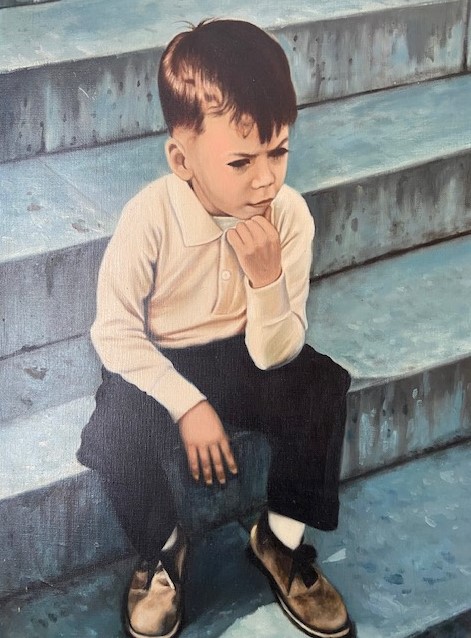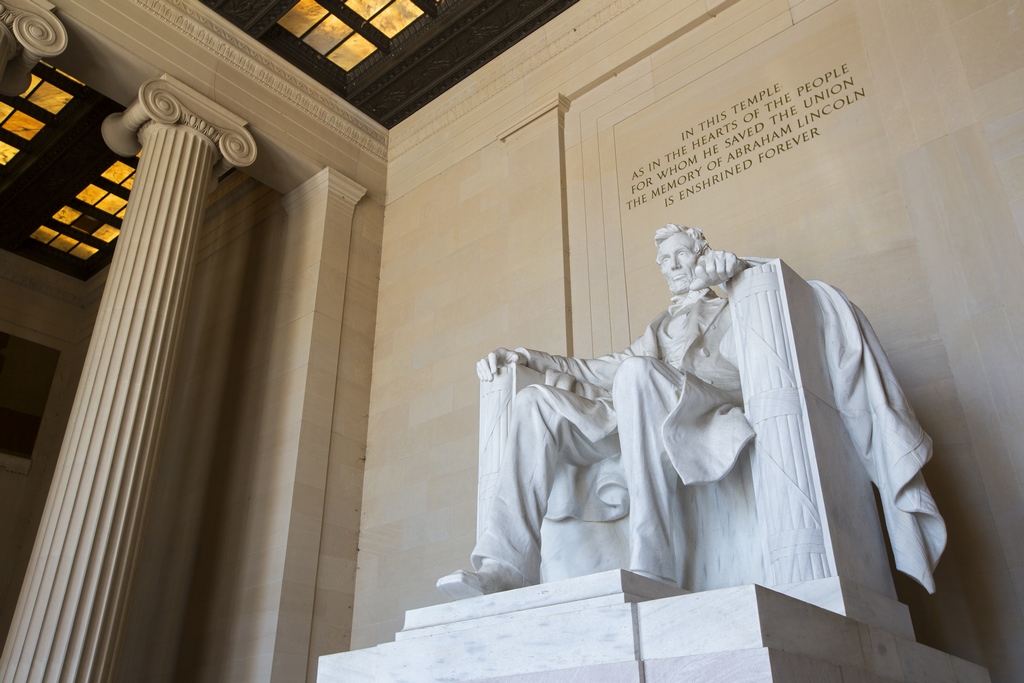On the Steps of Freedom


Celebrating the birth of the United States is for many both a joyous and somber occasion. At least it is for Eric Herman, who shares memories of his first childhood trip to Washington D.C. and the pride he takes in our nation’s history, as well as the lessons of the great “American Experiment.”
By Eric Herman
I first visited Washington D.C. with my mom and dad at age four back in spring of 1965. Amazingly, the experience left such an impression I still remember bits and pieces of it, albeit through the sepia-toned haze of time.
My dad, Richard Herman, Jr., had just completed officer training in the U.S. Air Force and was a newly minted 2nd Lieutenant stationed in nearby Dover, DE. Having recently relocated from California, the trip was full of meaning that I only understand now from the distant vantage of age and modern history. We didn’t know it at the time, but he was just a few months shy of being deployed to a festering conflict in southeast Asia that would become the Vietnam War, a hellish experience where he would serve three volunteer tours of duty over the following six years.
He survived the gauntlet of war, but many of his brothers and sisters in arms did not. Still hail and hearty at age 85, he will tell you that to this day, the experience has never left him and most certainly never will.
Back in the safe confines of D.C., we spent two days taking in many of the city’s iconic landmarks and memorials. I remember my mom lifting me up so I could look out the windows at the top of the Washington Monument, and later walking by JFK’s grave site, which was very new at the time. I remember being puzzled by the concept of an “eternal flame.” That day we picnicked on the banks of the Potomac River, and the most impactful event of all from that trip, nearly six decades ago, we experienced the Lincoln Memorial.
Even at such a young age, I was awestruck by the enormous and dramatic marble statue of Lincoln seated gazing out over the mall. I remember the hush of the Memorial and my dad trying to explain the historical significance, which of course was completely lost on me at the time. But the presence of the statue touched me on an instinctive, emotional level. Many years later when I returned as an adult, I felt very much the same way.
On that day, my dad took a picture of me seated on the steps of the Memorial, posed as Rodin’s “The Thinker.” He later had the image turned into an oil painting, pictured here. It still hangs in my home and is one of my very most valued possessions.
Later trips I’ve taken to our nation’s capital have included exploring the Smithsonian Institution, Library of Congress, the U.S. Capital, Jefferson Memorial and the ever-somber Vietnam Veterans Memorial. I’ve seen the cherry blossoms on the National Mall in full bloom and wandered the streets where the modern hustle and bustle co-exists with history. I have never been to the White House, but hope to one of these days.
As we observe and celebrate Independence Day, I can’t help but think of all the sacrifice, contradiction and grandeur that is our great nation. Even though we are often a contentious and combative society, I still take great pride in being a U.S. citizen and never lose hope for our future.
For my humble part, I’m not particularly enamored of the jingoism that accompanies national celebrations. Sure, fireworks, parades and hot-dog-eating contests can be entertaining, but those celebratory adornments are not really the point. I am far more concerned with the profound underlying principles of freedom, service, sacrifice, and justice, the virtuous characteristics that most closely define our democracy.
I am also angry that so many of our finest citizens have been forced to selflessly sacrifice their lives for freedoms that all people should have. To my way of thinking, war is the ultimate failing of our species, while the ability to achieve peace is our greatest asset. I remember watching my mother cry every time my dad would have to return to war after being home on leave. When I asked her why she was sad, she candidly told me because he was risking his life for our safety and our country.
That’s why every 4th of July before heading out to celebrate with family and friends, I re-read the Declaration of Independence and U.S. Constitution, often supplemented by excerpts from the Federalist Papers. It only takes about an hour, but doing so reminds me of the principles, struggles and idealism that underlie our society – and I’m reminded of both our collective failures and triumphs, of which we’ve shared many.
If you have never studied those foundational documents, I highly recommend doing so. My annual ritual has given me a fuller understanding of and appreciation for the genius and foresight of our Founding Fathers. And, if you’ve never been to Washington D.C., it’s more than worth the trip.
You might just find something deeply profound when ascending the steps of freedom.
E. Pluribus Unum
Opening image by David Evison|Shutterstock
